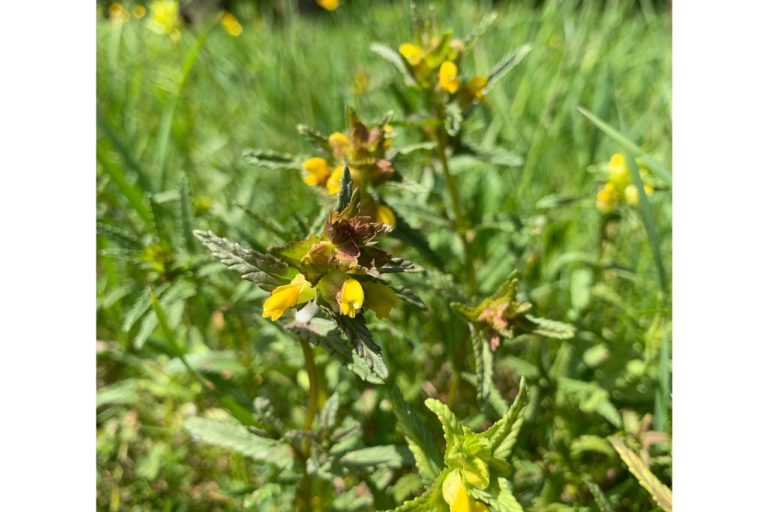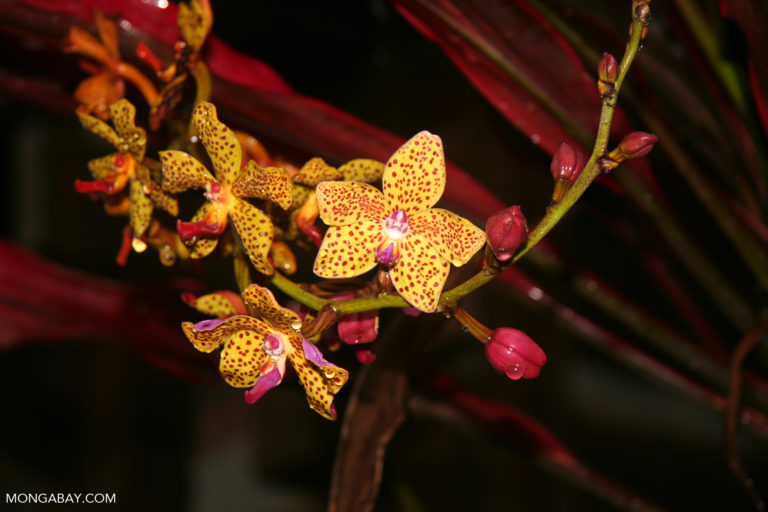- The expansive field of botany could be facing a dearth of skilled experts due to a growing lack of awareness of plants, interest in studying them, and fewer educational opportunities to do so.
- Humans depend upon plants for basic survival needs, such as food, oxygen, and daily household products, but fewer students are receiving enough instruction to enable them to do much beyond basic identification.
- This lack of educational opportunities to study plants – and a general lack of interest in them – is leading to less ‘plant awareness’ and could endanger society’s ability to address existential problems like biodiversity loss and even climate change.
- The University of Leeds’s Sebastian Stroud joins the Mongabay Newscast to talk about his research highlighting this increasing lack of plant literacy, the consequences of it, and what can be done to turn it around.
An early-career botanist joins the Mongabay Newscast to discuss his group’s recent study of the decrease in plant awareness and educational opportunities to study botany. A Ph.D. candidate in Urban Ecology and Botany at the University of Leeds, Sebastian Stroud explains why this trend — which is not unique to the U.K. — could vastly reduce the number of skilled botanists, and our ability to address the impacts of human-induced global change. “This situation drives us ever closer to losing our ability to build a sustainable and ecologically robust future,” Stroud and his study co-authors argue.
Listen here:
”Whether you know it or not, you are a botanist,” says Stroud, who challenges his students with an exercise to name all the plants or plant products they use before they get to work. The number is staggering. “Before I’ve even got into my cereal, that could be 15 different species that are being used in there,” he says using his own morning as an example. But this knowledge, Stroud and his colleagues note, is less ubiquitous today and made worse by the removal of botanically-based subjects in higher-ed curricula, which they call “an extinction of botanical education.”
Stroud explains how the growing lack of educational opportunities to study plants in the U.K. is part of a positive feedback loop where fewer people are interested in plants, and academic institutions cut plant identification programs to due financial unviability. “Fewer people who are able to teach about plants leads to fewer people who are aware and interested in plants, which leads to fewer people who want to go into education to teach about plants and it all continues,” he says. This situation is partly why plant awareness–and the lack thereof–is being discussed and studied by conservationists and scientists.
Botanical knowledge and nature literacy are not just important for understanding one’s own connection to products, but there are also direct implications for meeting staffing needs on an organizational level for industries and sectors that rely on this knowledge, which Stroud and others note is already happening in the United States and could happen elsewhere. This could hinder society’s ability to properly meet existential threats such as the biodiversity crisis and climate change. “We could be facing a real decline in skilled botanists,” Stroud says.
To address this problem, Stroud argues it’s important to foster interest in plants from an early age. “It really starts with getting young people outside…if you want to foster attitudes to protect something, people need to value it,” he says. “To continue to inspire people, we need to teach them that they are part of an ecology, and to do this, a botanically literate education is essential,” as the study notes.
Related reading:

Subscribe to or follow the Mongabay Newscast wherever you get podcasts, from Apple to Spotify, and you can also listen to all episodes here on the Mongabay website, or download our free app for Apple and Android devices to gain instant access to our latest episodes and all our previous ones.
Banner Image: Orange orchid with magenta spots. Torajaland, Sulawesi, Indonesia. Photo by Rhett Butler.
Mike DiGirolamo is Mongabay’s audience engagement associate. Find him on Twitter @MikeDiGirolamo, Instagram or TikTok and Mastodon.
Citation:
Stroud, S., Fennell, M., Mitchley, J., Lydon, S., Peacock, J., & Bacon, K. L. (2022). The botanical education extinction and the fall of Plant Awareness. Ecology and Evolution, 12(7). https://doi.org/10.1002/ece3.9019





































